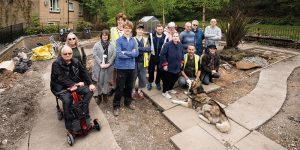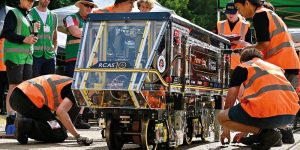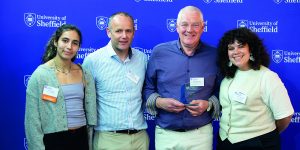
Empowering the next generation of female entrepreneurs
Since the industrial revolution, the people of Sheffield have been innovators. Back then, it was mostly men leading the charge. Today, female leaders are commanding boardrooms, factory floors, laboratories and governments. At Sheffield, staff, students and alumni of all genders are working to support rising female innovators and breaking down barriers to success.
There was a vibrant energy in the room at Sheffield’s ‘Connecting Women in Business’ event, hosted by the University’s enterprise service, Emerge: Be Enterprising. Amongst the chatter, students, staff and alumni found common ground. And despite hearing predictable concerns such as the curse of imposter syndrome and the need for more inclusive environments, the mood was buoyant and positive.
Inspiring pitches from impressive student-led ventures like Bobbi, a female health and fitness service, and Nasalyzer, a gastric cancer screening device, offered real examples of the innovative spirit thriving on campus. Seeing these young entrepreneurs confidently represent themselves to a room of strangers was particularly gratifying for staff organiser, Victoria Berry.
Emerge exists to encourage Sheffield students and recent alumni to be ambitious, find their confidence and see entrepreneurship as something that is within their reach.
With innovation in the region a strategic priority, fostering a supportive environment for aspiring entrepreneurs on campus is an objective that is as practical as it is principled. A huge part of this goal is about providing space and opportunities to bring this community together. Workshops, drop-in sessions, mentorships and talks are all held regularly. Students, staff and alumni are welcomed in-person and supported through online resources.
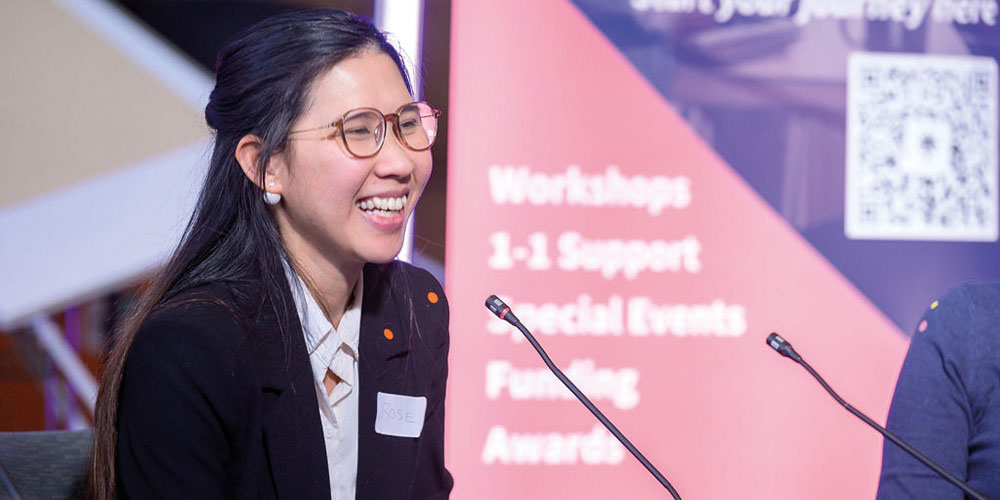
However, it didn’t take Victoria long to notice only 25 per cent of funding applications were submitted by females. And for those who were engaging with the service, it was interesting to see how the women connected with one another.
“In workshops particularly, the women in the room tended to group together. Their confidence seemed to come from each other. And although I wasn’t entirely surprised, I wanted to address the unique issues they faced.”
While the 2025 FTSE Women Leaders Review indicates progress with around 43 per cent of directorship roles at FTSE100 companies held by women, a gender gap persists. In the UK, only 15 per cent of SMEs are led by women, and female-led businesses receive just 5.8 per cent of all investment.
The government’s Minister for Investment and proud Sheffield alumna, Baroness Poppy Gustafsson OBE, responded to recent findings saying: “I know how strong female voices inspire positive change throughout an organisation, bringing new ideas and adding greater value…whilst the momentum is with us, we have much further to go.”
For Victoria, engaging strong female voices is exactly what she set out to do. Emma Marshall, a local business mentor and tech expert, led the keynote speech at the Emerge event. Having faced a career navigating leadership roles within male-dominated industries, Emma’s speech successfully made an impression.
Current student Anna said “As someone constantly wrestling with my inner critic, I found Emma’s speech both empowering and practical. It pushed me to connect with even more incredible women.”
During the panel discussion, Emma was joined by Rose Tran from Sheffield Technology Parks and Nicky Thomas, founder of The Growth Community. Together, they tackled the pervasive issue of imposter syndrome, offering practical advice for building confidence, community and resilience.
Nicky says, “On average, women end up doing nearly an hour a day of ‘non-promotable activities’. My advice is to plan a strategy to avoid being the ‘tea lady’, minute-taker or Christmas party planner!”
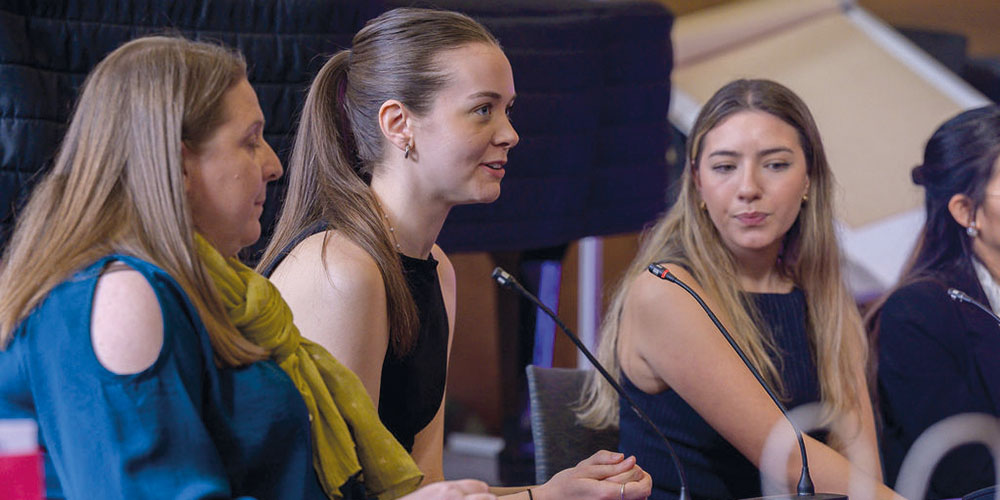
The sheer number of women who found common ground at the event reaffirms the need for an approach that empowers the next generation of female entrepreneurs. As she looks ahead, Victoria is eager to sustain momentum.
We need more female role models to connect with Sheffield students and graduates. Business leaders and entrepreneurs have a wealth of valuable experience to share.
But to really see the University provide best-in-sector support for budding innovators and student start-ups, Enterprise Manager, Matt Charlton, is keen to highlight the need for investment as well as quality advice.
“Access to funding remains a significant barrier for many early-stage ventures. Alumni who are investors or have experience in securing funding can play a vital role. Even modest investments can make a significant difference.”
So to all those alumni and supporters out there who have made it in business without the support of a university-led enterprise team, come and tell us how you did it! Help make the Emerge service an even bigger success for Sheffield’s most ambitious, motivated and talented entrepreneurs.
Are you an inspirational alumni entrepreneur keen to share your experience with the next generation? Or are you a graduate in need of advice for your own venture? Connect with Emerge today.




